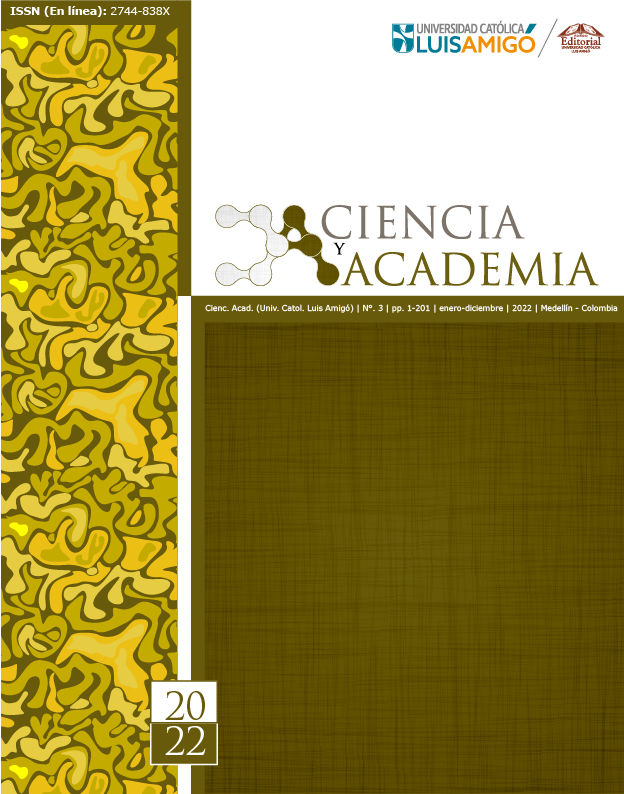Curricular reflections for a socially responsible education
DOI:
https://doi.org/10.21501/2744838X.4480Abstract
This essay proposes a reflection from a critical thinking perspective on the role of the curriculum in the development of a socially responsible education, in the light of the experiences of teachers and students; and its main objective is to analyze the importance of transforming the curricular visions in perspective of the teacher's role, the challenges of culture and the role to be assumed by those who are part of a training proposal. In essence, it is based on the assumption that students can assume clear positions, argue them and finally put them into practice in order to contribute to the improvement of their life project, and consequently, achieve changes that transcend their social development and their entire environment. All of the above reflects the center of interest of the Educational Social Responsibility Seminar - RSed, of UNIMINUTO- Bello.
Thus, it is proposed a look that transcends the classrooms and reaches the reality of each one of the educational actors, from training processes aimed at the reflective discussion of reality, which achieves to establish social transformation from the cultural and educational as socially responsible beings, concerned and sensitive for the others and the other, before a society that constantly forces to face challenges that drive the curriculum to be protagonists of an education for change. A curriculum proposal only makes sense when it responds to the educational challenges of the 21st century and the challenges of the context.
Downloads
References
Arroyave Giraldo, D. I. (2001). En torno al currículo: del re-conocimiento a la re-creación institucional. Seduca.
Díaz Domínguez, T., & Alemán, P. A. (2007). La educación como factor de desarrollo. Revista Virtual Universidad Católica del Norte, 1(23), 1-15. https://revistavirtual.ucn.edu.co/index.php/RevistaUCN/article/download/149/286
Gamboa Esteves, A. C., Martínez López, N. A., & Maass Moreno, M. (2018). Estudiantes en la era digital: Aproximación a la estructura del perfil cultural de información, comunicación y conocimiento. Estudios sobre las Culturas Contemporáneas, XXIV(47), 41-61. https://hdl.handle.net/20.500.12371/12234
Malagón Plata, L. A., Rodríguez Rodríguez, L. H., & Ñáñez Rodríguez, J. J. (2019). El currículo: fundamentos teóricos y prácticos. Sello Editorial Universidad del Tolima.
Pineda Rodríguez, Y., & Loaiza Zuluaga, Y. (2017). Un análisis del trayecto histórico del currículo en Colombia. Segunda mitad del siglo XX. Revista de Investigaciones, 17(29), 150-167. http://dx.doi.org/10.22383/ri.v17i29.94
Tadeu da Silva, T. (2001). Espacios de identidad. Nuevas visiones sobre el currículum. Octaedro.
Published
How to Cite
Issue
Section
License
Copyright (c) 2022 Ciencia y Academia

This work is licensed under a Creative Commons Attribution-NoDerivatives 4.0 International License.
La revista y los textos individuales que en esta se divulgan están protegidos por las leyes de copyright y por los términos y condiciones de la Licencia Creative Commons Atribución-No Comercial- 4.0 Internacional. Permisos que vayan más allá de lo cubierto por esta licencia pueden encontrarse en http://www.funlam.edu.co/modules/fondoeditorial/






